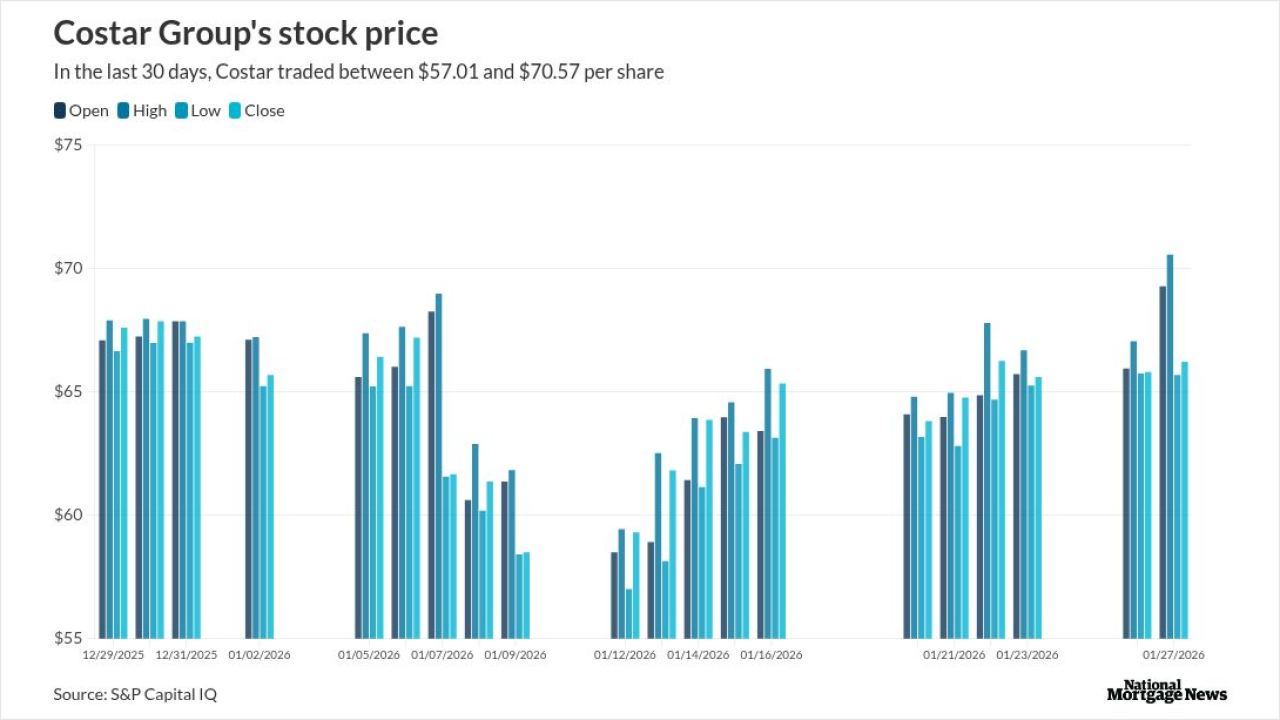Mortgage industry economists have downgraded their outlooks for U.S. gross domestic product growth, and the resulting uncertainty led to a downward revision for originations in their July forecasts.
But they vary on the direction of purchase volume in the future and whether the U.S. is definitively heading for a recession. Another factor in the forecast changes is that mortgage rates
Freddie Mac is the most optimistic of the three, but it dropped its total volume outlook to $2.84 trillion from $3.06 trillion from its last forecast

Next is Fannie Mae, whose July prediction for 2022 of $2.53 trillion was $8 trillion lower than
Finally, the Mortgage Bankers Association now calls for $2.37 trillion in total originations this year, down from $2.41 trillion a month ago.
But the MBA is diverging from the other two, as it still expects record
The MBA is predicting $1.66 trillion in purchase volume for 2022, up from $1.65 trillion last year, while in 2023 it calls for $1.7 trillion and $1.8 trillion the following year. It is still lower than its June forecast for 2022 of $1.68 trillion.
Any dollar volume gains are a function of higher home prices. The MBA outlook for units originated expects a decline to 4,446 purchase loans this year and 4,374 in 2023 from 4,876 during 2021, before rebounding to 4,494 in 2024.
GDP growth should end 2022 at 0.6%, a change from June's forecast of 1.6%, MBA Chief Economist Mike Fratantoni said in a statement. The Federal Reserve's continued tightening will increase economic stress for households and businesses.
"While a recession is not in our baseline forecast, it is a coin flip at this point, as we estimate a roughly 50% chance that the U.S. could enter a recession over the next 12 months, with the most likely timing being in the first half of 2023," Fratantoni continued.
The elevated risk for a recession has led potential homebuyers to pull back further from making a purchase in the past month. "Additionally, the
Fannie Mae revised downward its forecast for total home sales growth in 2022 to a decline of 15.6%, from last month's drop of 13.5%. However, it pushed up its home price appreciation forecast to a 16% year-over-year gain this year from the previously projected 10.8%.
Fannie Mae’s Chief Economist Doug Duncan is more certain the U.S. is heading for a recession, pushing up the expected start date to the first quarter of 2023.
"With inflation running well
Fannie Mae now expects $1.78 trillion in purchase volume this year, down from $1.86 trillion for 2021. In June, Duncan predicted $1.81 trillion of purchases in 2022. The 2023 purchase forecast was increased, however, to $1.71 trillion from June's $1.69 trillion.
Freddie Mac's third quarter forecast reversed its outlook on the purchase market, as it now expects a drop to $1.96 trillion from last year's $2.0 trillion. The government-sponsored enterprise's second quarter outlook expected purchase to grow this year to just under $2.1 trillion.
Sam Khater, Freddie Mac's chief economist, also cut his 2023 purchase prediction to $1.88 trillion from the second quarter's $2.22 trillion.
"Although house price appreciation will grow at a more moderate rate, home prices remain high relative to homebuyer incomes," Khater said in a press release. "Taken together, these factors are exacerbating affordability challenges and causing a slowdown in the housing market.



